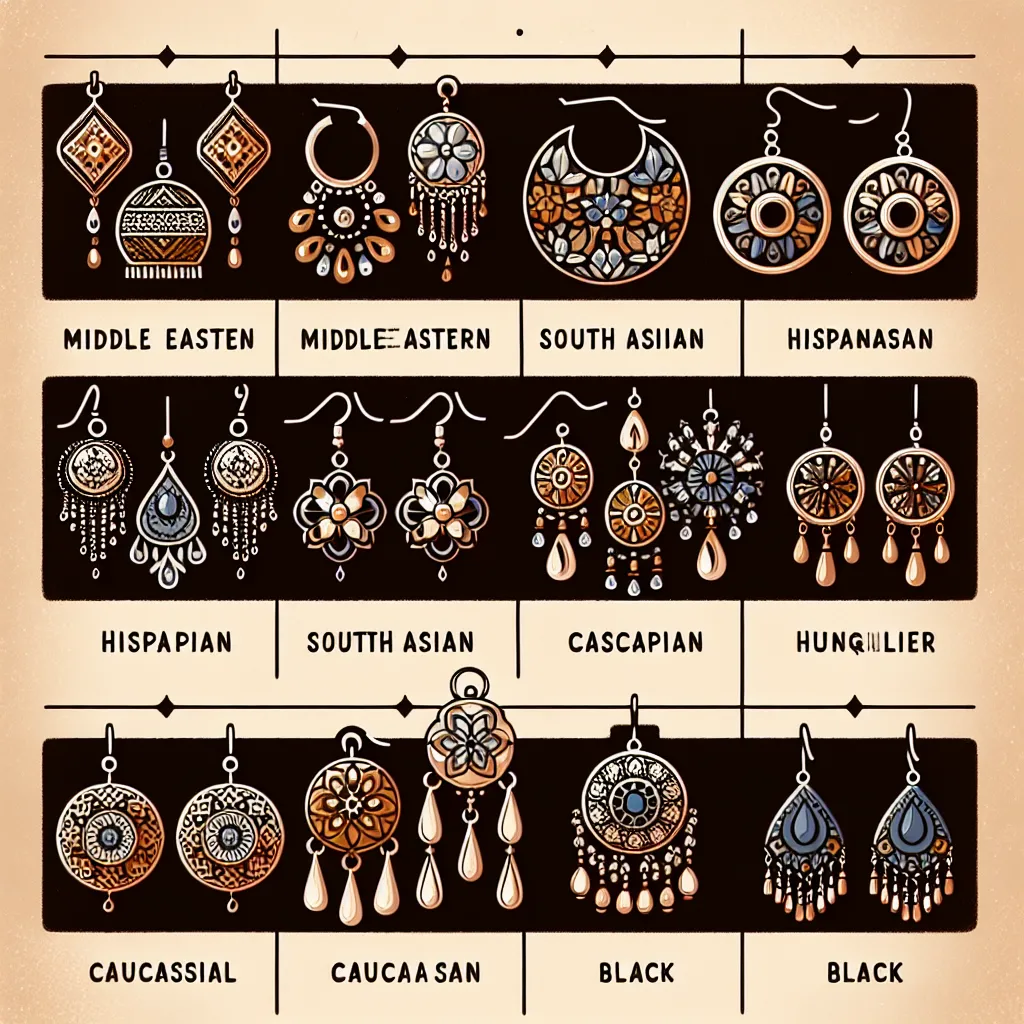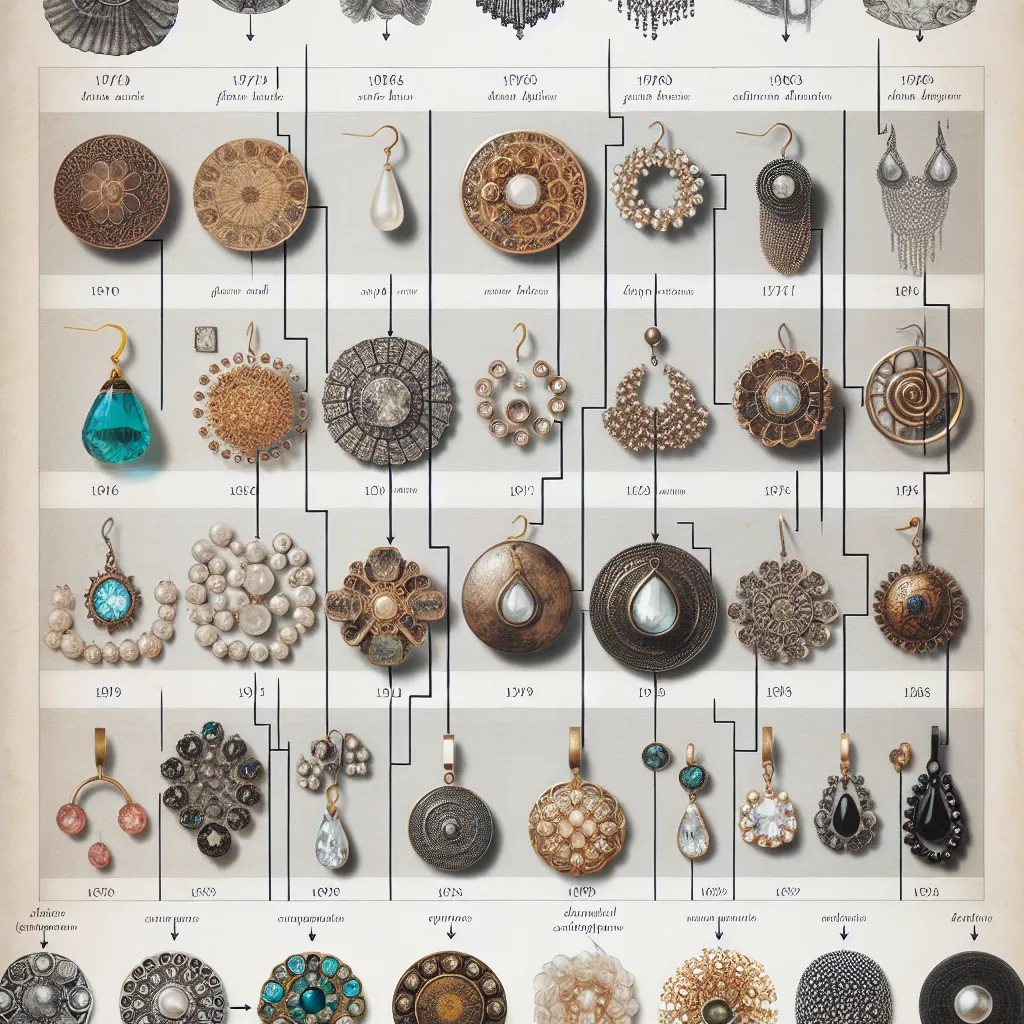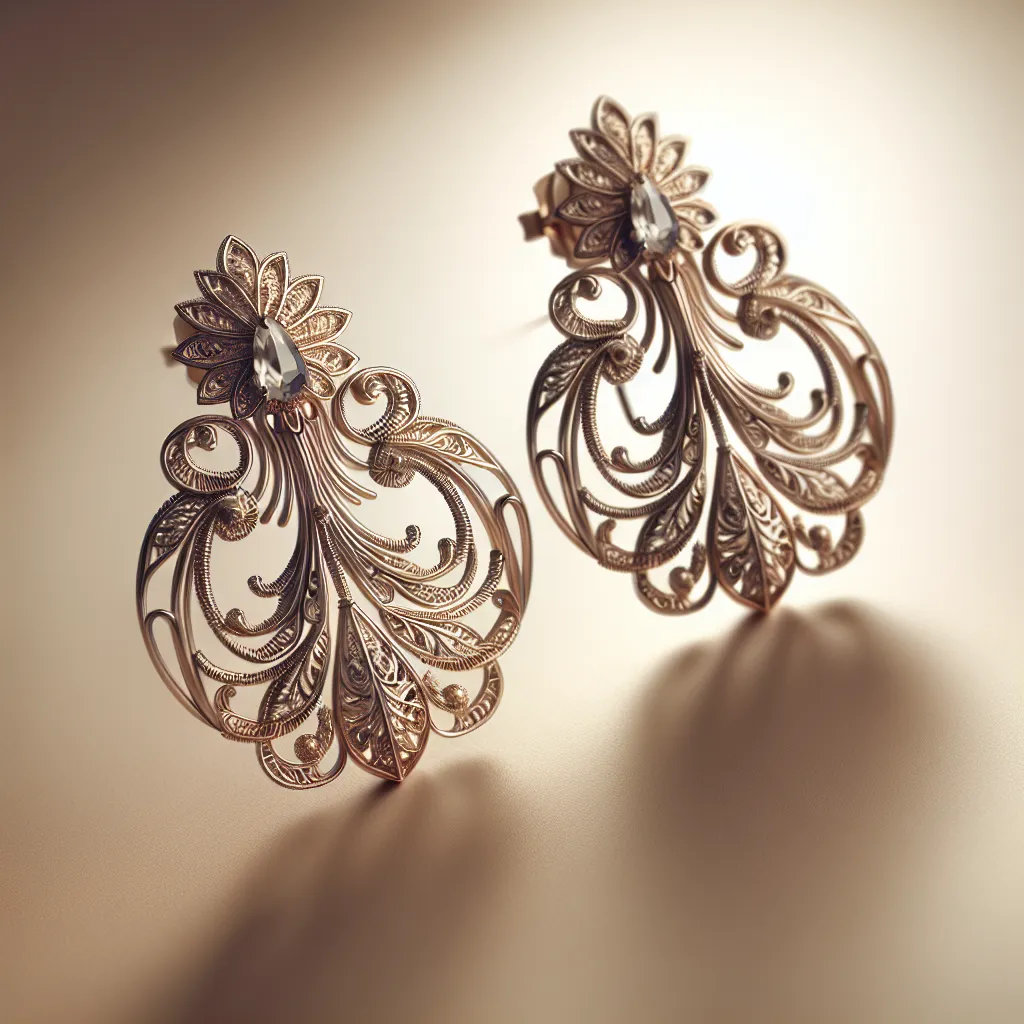Earrings as Cultural Signifiers: A Cross-Cultural Analysis
Earrings have long been recognized as significant cultural signifiers across various societies and civilizations. As a form of body adornment, earrings carry deep cultural and symbolic meanings that vary widely from one culture to another. In many traditional societies, the style, material, and design of earrings can convey a wealth of information about the wearer’s social status, religious affiliation, and even marital status.
For instance, in certain African cultures, large hoop earrings are often worn by women as a symbol of their tribal heritage and familial lineage. The size and intricacy of the earrings can also indicate the wealth and status of the wearer within the community. Similarly, in South Asian cultures, earrings play a crucial role in expressing a woman’s marital status. Married women often adorn themselves with elaborate and ornate earrings, signifying their union and commitment.
Furthermore, the symbolism of earrings extends beyond personal adornment and can carry political or spiritual connotations. Among the Native American tribes, earrings fashioned from specific materials such as turquoise or feathers hold deep spiritual significance, often representing connections to the earth, sky, or various deities within their belief systems. Even in modern Western societies, earrings have become a means of self-expression and cultural identity, with individuals choosing designs that reflect their heritage or personal beliefs.
By examining the diverse practices and meanings associated with earrings across different cultures, it becomes evident that these adornments are not merely decorative accessories but potent symbols deeply rooted in the cultural tapestries of societies worldwide.
The Historical and Cultural Significance of Earrings
Earrings have been an important form of adornment across cultures throughout history, carrying deep symbolic and cultural significance. From ancient civilizations to modern societies, earrings have held various meanings and have been worn for different purposes, reflecting the values and traditions of the wearers. The historical and cultural significance of earrings is evident through their representation of social status, spirituality, and personal expression.
In many cultures, earrings have symbolized social status and wealth. For instance, in ancient Egypt, earrings were worn by both men and women as a sign of their prosperity and high social standing. Similarly, in some South Asian cultures, elaborate and ornate earrings are traditionally worn by brides as a symbol of their family’s wealth and prosperity. The historical significance of earrings as a status symbol is also reflected in various historical paintings and artifacts, depicting nobility and royalty adorned with luxurious earrings.
Furthermore, earrings have held spiritual and religious significance in many societies. In Hindu culture, earrings, known as “karnaphool,” are considered auspicious and are often associated with religious rituals and ceremonies. Similarly, in some Native American tribes, earrings were worn as a symbol of connection to the land and spiritual beliefs, with specific earring designs representing elements of nature and spiritual guardianship.
Personal expression is another significant aspect of the historical and cultural significance of earrings. Throughout history, people have used earrings as a means of expressing their individuality, cultural identity, and artistic sensibilities. Different earring designs, materials, and styles have been associated with specific cultural groups and their traditions, serving as a form of personal expression and cultural pride.
In conclusion, earrings carry a rich historical and cultural significance, representing social status, spirituality, and personal expression across diverse societies. Understanding the symbolism of earrings across cultures provides valuable insights into the values and traditions of different communities, highlighting the enduring importance of this form of adornment throughout history.
Understanding the Symbolism of Earrings in Different Cultures
Earrings have held significant symbolism across various cultures throughout history, with each culture attributing different meanings to this popular form of body adornment. Understanding the symbolism of earrings in different cultures can provide insight into the values, beliefs, and traditions of diverse societies.
In many cultures, earrings are seen as more than just fashion accessories – they often carry deep cultural, spiritual, and social significance. For example, in some African societies, earrings are worn to symbolize wealth, status, and identity within the community. The size, material, and design of the earrings can communicate a person’s social standing and tribal affiliation.
Similarly, in South Asian cultures, earrings are not only worn for aesthetic purposes, but they also hold religious and symbolic value. For instance, in Indian culture, it is common for women to wear elaborate earrings as part of their bridal attire, symbolizing femininity, marital status, and prosperity.
Among the Native American tribes, earrings are often crafted with specific symbols and materials that represent spiritual beliefs, connection to the earth, and tribal traditions. These earrings serve as a form of visual storytelling, preserving the cultural heritage and wisdom of their ancestors.
Even in modern Western societies, earrings continue to carry symbolic meaning. They can be a form of self-expression, a way to communicate personal style, or even symbolize membership in certain subcultures or social groups.
Understanding the diverse symbolism of earrings across cultures provides a glimpse into the rich tapestry of human history, beliefs, and traditions, showcasing the universal significance of this timeless form of body adornment.
Exploring the Cross-Cultural Meaning of Earrings
Earrings have been a significant aspect of adornment across cultures for centuries, each carrying its own symbolic meanings and cultural significance. Exploring the cross-cultural meaning of earrings reveals a rich tapestry of tradition, symbolism, and expression. In many cultures, earrings are more than just decorative accessories; they carry deep cultural, spiritual, and social significance.
In some cultures, earrings are believed to ward off evil spirits or protect the wearer from harm. For example, in ancient Mediterranean cultures, people adorned themselves with earrings featuring motifs of the evil eye to deflect negative energy. Similarly, the practice of wearing earrings in many South Asian cultures is tied to the belief in their protective powers.
Moreover, earrings often convey social and marital status. In certain African societies, the size, shape, and material of earrings denote a person’s rank, tribe, or marital status. They are also used as part of traditional ceremonial attire, symbolizing the transition from adolescence to adulthood or marking important life events.
Across various cultures, earrings can also serve as a form of artistic expression, with unique designs reflecting regional aesthetics and craftsmanship. For instance, Native American earrings often incorporate symbols of nature and spirituality, while Chinese jade earrings may feature auspicious symbols for luck and prosperity.
Furthermore, earrings can carry religious significance. In many Middle Eastern cultures, earrings are adorned with symbols representing spiritual beliefs, and their designs may vary based on specific religious or spiritual affiliations. Similarly, in Hindu culture, earrings are associated with religious rituals and are often worn as part of traditional attire during ceremonies and festivals.
Understanding the symbolism of earrings across cultures provides insight into the values, beliefs, and traditions that have been passed down through generations. It underscores the significance of jewelry as more than just decorative accessories but as tangible expressions of culture, identity, and heritage.




